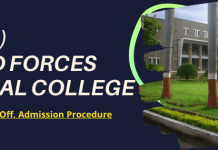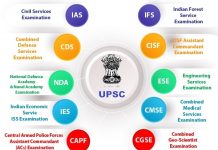What is Cyber Law?
It is a specialisation in the ground of law which looks into and rectifies authorized issues associated to the World Wide Web (WWW). Candidates opting to focus in this field need to pact with criminal activities which include fraud, theft, forgery and denouncement conducted on the internet.
Lawyers in this field Law deal with a lane area which comprise of freedom of expression, access to the internet, practice of internet as well as online privacy. While organization out any issues. Lawyers transfer to the Indian Penal Code (IPC) as well as the Indian Technology Act (ITA), 2000. Thus, a number of the issues that form a part of this that include – Virus/Worm attacks, Cyber terrorism, Credit card frauds, Hacking, DOS attack, Pornography, IPR violations, EFT frauds, and many more.
Candidates can chase undergraduate (UG) and the postgraduate (PG) level degree programmes in the ground of this course. In Under Graduate level courses candidates need to chase integrated law courses in order to specialise in this while in a Post Graduate level law course candidates can directly away specialise in this field.
Separately from these degree programmes, candidates can also chase diploma and certificate courses in the ground of this course. Some of these popular courses are Diploma in Cyber Law, Certificate in Corporate Practice, Post Graduate Diploma and Information Technology, Professional Diploma in Cyber Investigations and Laws, Diploma in Information Security , Post Graduate Diploma , Advanced Certification , Information Technology (IT) and Social Media Law, Diploma in Internet Law & Policy, Post Graduate (PG) Certificate , Certificate and many more.

Cyber Law Eligibility Criteria
Candidates are well-versed that the eligibility criteria for this course differ from college to college. On the other hand, candidates are eligible to be appropriate for an integrated Cyber Law course accessible at a college/ university if they have finished their Higher Secondary School/ Intermediate (12th) or equivalent from a renowned board.
To follow the LLM course accessible in the ground of this course candidates need to own LLB or corresponding degree.
Also read : Career in cyber law
Cyber Law Skillset
Candidates who want to chase this course need to be well-versed with latest technology and the Indian Penal Code (IPC). Some key skills that a candidate should own in order to be successful in this field are given below:
| Skills Requisite for Cyber Law | |
| Interest | Ability to assimilate as well as analyse facts |
| Interest in technology | Good writing ability |
| Influential | Convincing |
| Ability to dispute on a topic | Integrity |
| Intellect | Good judge of situation/people |
| Fluency and clearness of speech | Good presentation skills |
| Confidence | Unbiased |
| Mental & physical stamina | Interest in Research |
Cyber Law Subjects & Syllabus
The subjects/ topics qualified as part of a Cyber Law course may vary from college to college. Candidates can go check the syllabus of Under Graduation level law courses offered given below:
| Undergraduate Courses (UG) | Syllabus |
| BTech in Computer Science (CS) and Engineering and LLB (Hons) | Physics, Chemistry, Mathematics (PCM), Problem Solving with ‘C’, Basic Electronic Engineering Engineering Graphics & Electronic Devices and Circuits, Environmental Studies, Data Structures using ‘C’, Fundamental of Moot Court & Comm Workshop 1.2, OOPs using C++ and UML, Comp Systems Architecture & Data Comm & Networks, Legal History of Courts, Microprocessor & Communication Workshop 2.0, Opt Systems & Torts & Consumer Protection Law, Software Engineering & Design & Analysis of Algorithms, Legal Method + Legal Reasoning, Database Management System & Law of Contracts, Theory of Automata & Computation, Artificial Intelligence & OOPs through Java, Family Law, Constitutional Law & Foreign Language, Data Warehousing and Data Mining, IT for Forensic Science, Compiler Design & Web Technologies using .NET, Storage Technology Foundations & Constitutional Law, Network Security & Cryptography & Family Law, Artificial Neutral Networks, Natural Language Processing, Law of Crimes I & Communication Workshop 3.0, Mobile Computing, Administrative Law & Labour Law, Law of Evidence & Environmental Law, Mediation Workshop, Arbitration &Conc & Alternative Dispute Res Mechanical, Public International Law & Right to Information, Digital Crime & Computer Law, Taxation Law & Private International Law Intellectual Property Law, Dig Copyright & Data Prot. Law & Jurisprudence, Competition Law & Information Security Governance, Information Security Intelligence & Compliance analytics, Drafting, Pleading & Conveyance, IT Forensic and Electronic Evidence Law of Technology Transfer & Dissertation, Internet Regulation & Jurisdiction, Law of Telecommunication convergence Prof. Ethics, According for lawyers & Bar Bench Relation, International Trade Law, Information Security Audit & Monitoring Moot Court & Internship & Dissertation |
| BA LLB Specialisation | Computers and its Impact in Society, Organisation for Economic Co-operation and Development (OECD), World Bank, Commonwealth of Nations, Freedom of Speech and Expression in Cyberspace, Overview of Computer and Web Technology, Need for Cyber Law, Cyber Jurisprudence at International and Indian level, UN & International Telecommunication Union (ITU) Initiatives, Cyber Stalking/Harassment, Cyber Pornography, Identity Theft & Fraud, Council of Europe – Budapest Convention on Cybercrime, Asia-Pacific Economic Cooperation (APEC), Right to Access Cyberspace – Access to the Internet, Right to Privacy, Right to Data Protection, Cyber Crimes against Individuals, Institution and State, Hacking, Digital Forgery, Cyber terrorism Interface with Copyright Law, Interface with Patent Law, Trademarks & Domain Names Related issues, Cyber Defamation, Different offences under IT Act, 2000, Indian Context of Jurisdiction and IT Act, 2000., International Law and Jurisdictional Issues in Cyberspace, Cyber Defamation, Different Types of Civil Wrongs under the IT Act, 2000, Concept, E-commerce-Salient Features, Online approaches like B2B, B2C & C2C, Online contracts, Click Wrap Contracts, Applicability of Indian Contract Act, 1872, Concept of Jurisdiction, Dispute Resolutions |
Post Graduate Courses in Cyber Law
Candidates can go through course curriculum of PG level Cyber Law programmes offered at colleges in India below:
| Post Graduation Course (PG) | Syllabus |
| Master | Computer Forensics & Digital Evidences, Data or Information Cryptography, Intellectual Property Issues, Internet Architecture & Network Security, Cyber Space Indian Perspectives, Fundamentals of Cyber-Law, E-Commerce Legal Issues, Cyber Crime Laws in India |
| LLM | Regulation of cybercrimes, Cyber Contract and IT Act 2000, Overview of the cyber world, Cyber-crimes and related concepts, Copyright issue in cyberspace, Cyber law in India, International legal regime related to cybercrime, Overview of cyber law, IPR – An overview, Software Development & Licensing Agreements |
| Master of Cyber Law and Information Technology (IT) | Introduction to Computer Technology and Programming, Information assurance & e-Governance/ Data Information & Cryptography, Internet Architecture and Network Security/ Networking & Network Security, Database Management & 4GLs, Legal Dimensions of IPR in Cyber World, Fundamentals of Information Security e-Business Security, Communication and Soft Skills, , Computer Forensics and Digital Evidence, Security Audit, IT Acts and Cyber Crime, OS: Linux, Server (Apache), IT Act, Secure Software Engineering, Identity and Access Management, Wireless Network and Security, Data/ Information & Cryptography, IP Packet Analysis Process Management and Consultancy |
Cyber Law Course of Diploma & Certificate Courses:
Separately from the above-given courses, candidates can moreover outlook the syllabus of Diploma and Certificate courses in Cyber Law given below:
| Name of the Course | Syllabus |
| Diploma | Investigative Framework, International Framework, Basic legal terms and concepts, Cyber Law & Your World, Introduction to Cyber Law, Legislative Framework, Judicial Framework, Quasi-judicial Framework, Introduction to Cyber Law, Computer Software & Copyright Law Trademark Issues in Cyberspace, Understanding Computer Software, Semiconductor Layout & Design Law Software Licenses, Copyright, Domain Names & Law, Computer Databases & Law, Violation of Privacy, , Digital Signature, Freedom of Speech, Cyber Frauds, Computer Source Code, Cyber Pornography, Cyber Security Cyber Terrorism, Data Privacy & Confidentiality Information & Traffic Data, Intermediaries, Malware Other Computer Related Offences, Digital Signatures – Technical Issues, Electronic & Digital Signatures – Legal Issues, Unauthorised Access, Electronic Contracts, |
| Post Graduate (PG) Diploma and Information Technology | Basics of Computer & Cyber Security Information Technology (IT) Law (Cyber Law) Cyber Crimes and Investigation Procedures |
| Professional Diploma in Cyber Investigations and Laws | Cyber forensics, Cyber Crime and related laws, Computer network, File system and storage management, SIEM and log trails, Forensics and VA lab |
| Diploma in Information Security | Fundamentals of Information Security, Criminology and Criminal Justice Administration, Forms of Cyber Crimes & Frauds, Cyber Laws Intellectual Property Rights |
| Post Graduate (PG) Diploma | Digital signature, An overview of Cyber Law, Introduction about the cyberspace, Introduction to the Cyber World and Cyber Law, Cyber World, The internet and online resources, Security of information, Regulation of cyberspace – introducing cyber law, Scope of Cyber laws – e-commerce; online contracts; IPRs (copyright, trademarks and software patenting); e-taxation; e-governance and cyber crimes Cyberlaw in India with special reference to the Information Technology Act, 2000, International Legal Regime, Regulation of Certifying Authorities; Duties of Subscribers; Penalties and Adjudications; Offences under the Act; International legal regime relating to E-Commerce, Domestic Legal Regime – Cyber Law in India: Information Technology Act, 2000 – Digital Signature; E-Governance; Making of Rules and Regulations etc. Introduction to computer crime & cybercrimes; Classification of various cybercrime, Cybercrime and connected Concepts, Regulation of cyber crimes Paper IV: E-Commerce, Online business, Definition of E-commerce, Trademark Issues in cyberspace, Computer Software and Related IPR Issues, Types of E-commerce, Important Issues in Global E-commerce, Application of conventional territory based law to E-commerce, IPR Issues, IPR – An Overview, patent Issues in Cyberspace. |
| Advanced Certification Practice, | E-Commerce & the Law, Software-As-A-Service & Licensing, Technology Outsourcing, Introduction to IT Law, Electronics Contract and Digital Signature, Cyber Crimes, Privacy & Data Security, Online Reputation Management |
| Diploma in Internet Law and Policy | Law and Policy in ‘Indian’ Cyberspace, Jurisdiction in Cyberspace, Designing On-Line Agreements: Contractual Closure and Indian Contract Law Electronic Signatures & Digital Signatures, Electronic Evidence, Data Protection, Privacy and Corporate Compliance, Intellectual Property, Regulation of Certifying Authorities, The E-Policy Handbook, Intermediary Liability, The Internet and Electronic Commerce, Managing Legal Risks when promoting a business online, Insurance and the Internet, The Legal Challenges to Internet Banking, Privacy Bill, 2011: Critical Analysis, Internet Law Regulation |
| Post Graduate Certificate | Commerce and Cyberspace, Cyberspace Technology and Social Issues, Regulation of Cyberspace, Privacy and Data Protection |
Cyber Law Job Profiles
It is a extremely specialised ground in the stream of Law. After finishing an integrated Under Graduate (UG) course in this candidates can believe pursuing a Post Graduate level degree course in the same or even choose to bond a job. Given below are some popular job profiles that candidates can chase after completing this course:
Lawyer: In this job profile a candidate represents one of the parties/ clients in a trial at court. As part of this job profile, one wants to cross-examine witnesses and then roll reasons/ facts about why the court should provide the judgement in support of their clients.
Legal Advisors: In this job profile, one is normal to counsel clients on lawful rights and obligations. It chiefly research laws suitable to a meticulous case and thereafter go through preceding judgements approved in cases alike to the one their client is currently facing and thereafter help them in listing out how they can protect themselves.
Apart from this, candidates can also chase other law job profiles after implementation their course from an alleged college/ university.
For more information visit : Education In India





































[…] Also read : Cyber Law […]